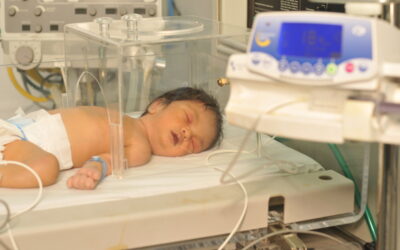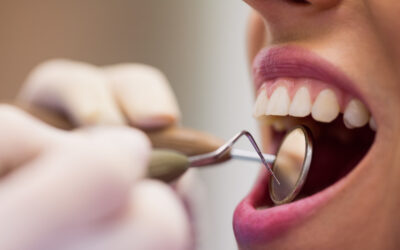Introduction Welcome to ONP Hospital, where the future of neonatal care unfolds within our state-of-the-artNeonatal Intensive Care Unit (NICU). Our commitment to delivering the highest standard of carefor our tiniest patients is evident in the cutting-edge technology,...
What is AMH?
Overview
In a fertility evaluation, one of the first stages is to determine how many healthy eggs you have remaining. Anti-mullerian hormone (AMH) is one of these indications. It is a hormone produced by the cells that surround your ovaries’ eggs. The quantity of AMH generated increases as the number of eggs available increases.
What is AMH?
The granulosa cells in your ovarian follicles create the anti-Mullerian hormone, often known as AMH. According to the American College of Obstetricians and Gynecologists (ACOG), the generation of AMH is a reflection of your ovarian reserve.
Consider your ovarian reserve to be a basket full of eggs. You’re usually born with a basket full of eggs, which you use throughout your life.
Your egg count may be determined via an AMH test. The hormone is associated with fertility since a low AMH level indicates a reduced ovarian reserve (DOR) or low egg count. To put it another way, if you have DOR, your ovarian reserve is depleting.
The greater your AMH level, the more eggs you have. The smaller your ovarian reserve, the fewer eggs you have, the less AMH you’ll make.
A low AMH level does not always imply that you will be unable to conceive. It only means you’ll have less time to focus on conceiving.
When is the best time to take the AMH test?
AMH has the benefit of being able to be tested at any point throughout the menstrual cycle. Obesity, smoking, race, and hormonal contraceptives are among the variables that might affect AMH levels.
Why does AMH count decrease?
Low AMH may be caused by a variety of factors, including:
- Age: The main cause of low AMH is your age. Your ovarian reserve and AMH levels normally diminish as you grow older.
- Genetics: Your genes may play a role in why you’re losing eggs at a greater pace than the general population.
- Medical problems: Ovarian reserve may be lowered by chronic conditions, including endometriosis and other autoimmune disorders.
- Surgery on the ovaries: Ovarian surgery for certain reproductive health concerns may sometimes result in scarring or injury, resulting in a reduction in ovarian reserve.
Ideal AMH Count
The amount of AMH in your body changes as you get older. What is typical for a 38-year-old may be too low for a 28-year-old. The majority of evidence shows that a normal AMH level is between 1.0 and 4.5 ng/mL.
Having a low AMH suggests two things:
- You’ve got fewer eggs remaining than someone your age who has a higher AMH.
- Your ovaries may not react as effectively to hormone injections if you have in vitro fertilization (IVF), resulting in fewer eggs recovered.
A low AMH, on the other hand, does not always predict infertility, particularly in young women. Furthermore, if you’re thinking about postponing childbirth, it’s appropriate to ask your gynecologist to examine your AMH to see “how many eggs you’ve got.” Finally, if your AMH is insufficient for your age, talk to an infertility professional about your alternatives.
Treatment options
There is no therapy for low AMH; however, there are techniques for a woman to enhance her AMH before contemplating ART so that her egg quantity and quality increase before IVF treatment.
Natural low AMH fertility therapy alternatives to enhance AMH levels may be recommended to boost ovarian response during stimulation.
Natural treatments for low AMH include:
- Yoga and regular exercise
- Acupuncture
- Eating a well-balanced diet
- Taking DHEA supplements is a good idea. DHEA (Dehydroepiandrosterone) is a hormone that may help you get more and better eggs.
The following are some more Low AMH fertility therapy options for conceiving a child:
- IVF with Low AMH levels – The odds of a successful pregnancy are determined by a woman’s ovarian reserve. For those who have few eggs remaining in their ovaries, IVF is a viable alternative. If the developed egg extracted in a certain IVF cycle is of excellent quality, the IVF cycle should be successful. However, if the AMH level is low, but the FSH level is excessively high, the ovaries aren’t producing enough eggs of acceptable quality, which means a poor fertility result. Nevertheless, women can conceive successfully with IVF with adequate therapy, including maintaining a healthy lifestyle, taking a DHEA supplement, and following a properly planned ovarian stimulation regimen.
IVF with Donor egg – If ovarian stimulation to harvest excellent quality eggs has failed, women with few or no eggs might pursue IVF using a donor egg.
Conclusion
Your ovarian reserve, or the amount of eggs you have at testing, is determined by AMH levels. These levels decrease as you become older. Doctors may request an AMH test as a diagnostic tool to initiate a fertility discussion. As a result, it’s critical to speak with your doctor or a reproductive endocrinologist and infertility expert if you have questions about your AMH levels or concerns about fertility.
If you have been experiencing such symptoms, consult an expert today.
About Author
More Blogs
Transformative Care: Navigating the State-of-the-Art NICU Facility at ONP Hospital
Introduction Welcome to ONP Hospital, where the...
Plant-Powered Health: Exploring the Benefits of a Vegetarian Diet
Introduction The debate between vegetarian and...
Battling Oral Cancer and Tobacco: Understanding Treatments, Diagnosis & Prevention
Introduction Oral cancer, a type of head and...
More Videos
Dr. Amita Phadnis’s Full Speech on Survival & Health Rights at UNICEF India.
Dr. Amita Phadnis ,M.D., Gave a Motivating Speech
Breast cancer is cancer that forms in breast cells. Women are mostly diagnosed with this cancer. Although it can be seen in both men and women
What Are the Symptoms of Breast Cancer?
Breast cancer is cancer that forms in breast cells. Women are mostly diagnosed with this cancer. Although it can be seen in both men and women
FAQ’s
Pregnancy and Migraine Headaches: What Women Need to Know
When you are pregnant or breastfeeding, then...
What Is the Problem of Orthopedics in Children?
While orthopaedic problems are commonly seen in and associated with the elderly, it’s important to be alert regarding the fact that they can afflict young people and children as well.
All You Need to Know About Reproduction
Most science students have to study about reproduction in their high school syllabus, and some learn from their parents, who may discuss it even earlier. It’s a very good thing to know about our own bodies…



 Home
Home Videos
Videos

